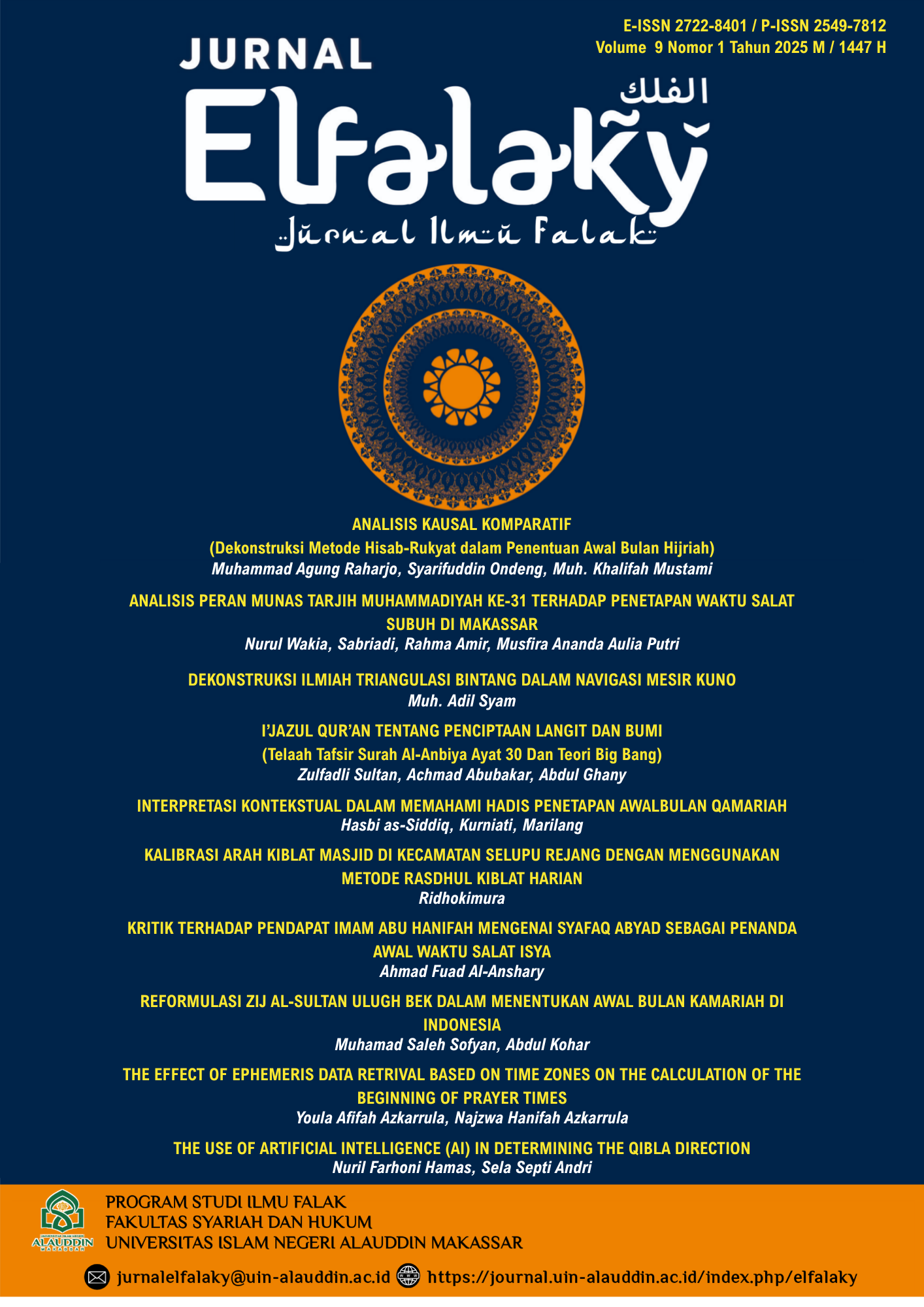ANALISIS KAUSAL KOMPARATIF (Dekonstruksi Metode Hisab-Rukyat dalam Penentuan Awal Bulan Hijriah)
Dekonstruksi Metode Hisab-Rukyat dalam Penentuan Awal Bulan Hijriah
DOI:
https://doi.org/10.24252/ifk.v9i1.58325Keywords:
Comparative causal research, hisab, rukyatAbstract
This study examines the comparative causal analysis of the deconstruction of the hisab-rukyat method in determining the beginning of the Hijri month. The method used in this study is (library research) to integrate theories and empirical findings related to comparative causal research with a descriptive qualitative type using a phenomenological research approach. Data collected through literature studies were analyzed using data reduction techniques, data presentation and conclusions. The results of the study indicate that the preference for the hisab or rukyat method is not merely a matter of scientific technicality, but is influenced by the institutional history, religious authority, and ideological views of each group, such as Nahdlatul Ulama which prioritizes rukyat and Muhammadiyah which prioritizes hisab. This difference also has an impact on the social dynamics of the community, ranging from tolerance, potential conflict, to reconciliation efforts. This study emphasizes the importance of an interdisciplinary approach in understanding religious practices, as well as the need for open dialogue between Islamic organizations to build understanding.
References
Amran and Fathurrahman, ‘Analisis Efektivitas Pembelajaran Berbasis Teknologi Informasi di Era Digital’, Jurnal Pendidikan Teknologi Indonesia, 2.3 (2020).









